Balancing Corporate & Homesteading Lifestyles
Affirmation: I See Possibility At Every Turn

I notice every opportunity in front of me. I pay attention to the details, so I see the possibilities everywhere.
I know the universe presents an infinite number of options. I am happy to pick and choose the ones that work for me. I am grateful that the world has so many possibilities in it.
I notice all the possibilities created by this magical universe.
I direct my energy toward the opportunities that help me and my family. I focus on the ones that matter most. I see the positive options even during difficult situations.
I have the determination to take advantage of these opportunities.
I have the skills and talents to make an opportunity into a success story. I take every possibility as a chance to improve my life.
I raise questions, search for answers, and look at possibilities.
I find innovative ways to handle issues or roadblocks. I look at obstacles from new angles.
I make advances toward success. My mind allows me to see how to use every opportunity to my advantage. I make shifts in my perspective to ensure I capture every possibility. I reset and pause my thinking to reach goals.
Today, I notice how possibilities spring up before me. I am thankful to have the vision to see them every day.
Self-Reflection Questions:
- How can I ensure I avoid missing important opportunities?
- What can I do to help others see the possibilities in front of them?
- How can I train my mind to look at more than one option without feeling overwhelmed?
Affirmation: There Is A Positive Lesson In Each Situation I Face

I look for learning opportunities in each situation I encounter. Positive experiences and unfavorable circumstances both can teach great lessons.
I gain wisdom when I allow myself to look deeply at various situations. That knowledge allows me to be open to new things. When I am open-minded, I create a sense of purpose.
My job is an ongoing learning experience. Although my shortcomings make me feel frustrated at times, I can see a ray of light. I realize that having limitations means having room for improvement and opportunities for greater achievements.
My quest for developing personal relationships sometimes ends unfavorably. When I meet someone who wants to take advantage of me, I am disappointed. I revisit my process for assessing a person's character.
When I am able to look back and see my missteps, I feel relieved. It gives me the confidence to pursue future relationships while exercising wisdom.
Stress sometimes causes me to become ill. I learn the necessity of treating myself well, and work towards having stress-free environments, where my health is first and foremost.
Today, I am open to the situations that life throws in my direction. I am confident in my ability to take them in stride. I commit to analyzing each experience in hopes of finding the positive lesson hidden within.
Self-Reflection Questions:
- In what situations do I feel too overwhelmed to find the positive lesson?
- What are some of the techniques I can use to focus on staying positive?
- Why is it hard to find the positive lesson during a difficult situation?
Full-Time Job and a Part-Time Business: How to Manage Your Time

Managing time wisely and effectively is challenging. But excellent time management skills are invaluable, especially when trying to manage both a full-time job and a part-time business. There are other things in life besides just work.
If you want the opportunity to experience and enjoy other activities in life, getting your time under control is imperative.
It’s all about prioritizing, focusing, and being productive, rather than simply being busy.
These time management tips will help to guarantee that your time is spent wisely:
- Focus on being productive. You can spend a lot of time actively working, yet accomplish relatively little. Being busy is about motion. Being productive is about results.
- Consider the results you are likely to see from the course of action you’re about to undertake. Are the expected results worth the time?
- Being busy all day and accomplishing nothing should be avoided by everyone, but it’s especially important for those with two jobs.
- Drop the multi-tasking. The ability to multi-task has been lauded for decades, but recent research is showing that multi-tasking is a mistake. Some research has shown that focusing on one task at a time increases productivity and performance by 100%.
- This can be the difference maker between success and failure if you’re juggling a part-time business with a full-time job. Productivity is everything. Focus on one thing until it’s time to move on to something else.
- Consider using a timer to help you focus. If a task should take 25 minutes to complete, use a timer and try to beat the clock. A simple timer can really help you stay focused.
- Have a new list of objectives and to-do list each day. Priorities and needs change from day to day. Start each day with a new list or priorities. Any items that are incomplete can be moved to tomorrow’s list, but only if they’re still priorities.
- If you find it helpful, have a list of things to do before lunch and after lunch. Breaking up the day like this can make things more manageable.
- Create the list the night before. You won’t waste time in the morning trying to plan your day. You might also find some elegant solutions to your challenges if you have the opportunity to sleep on them.
- Make a real effort to eliminate distractions and interruptions. There’s always something else that needs your attention. However, you’ll get more done if you can stick to the important tasks before allowing other things to grab your attention.
- You might want to spend the first two hours of each morning working on the most important tasks of the day before opening your email or listening to your phone messages.
- Make decisions with the time expenditure in mind. Working full-time and running a part-time business requires focusing on the time required by certain activities. Quick decision-making skills are vital.
- Many times, the second or third best solution is really the best solution if it saves time.
- Sometimes a good, quick solution is better than the best solution that is complicated and too time-consuming to implement.
- Delegate whenever possible. Whether it’s at the job or the business, delegate as much as you can. Do you insist on doing too much? Attempt to release some control and get all the help you can.
Managing a full-time job and a part-time business is challenging, but many people are able to manage both successfully. Focus on the most important tasks, minimize the distractions around you, and let others help. You’ll get more done in less time with greater results!
In The Darkness (A Short Story)

The moment Gary tippy-toed outside of his home, he just knew it was going to be a terrible day.
But Gary found out something surprising and rather embarrassing...
Gary stepped outside and knew at once that it was going to be one of those terrible days. Everything was dark and gloomy, like a thunderstorm was only moments away. But it was strange – the weatherman had said the day would be sunny.
Gary continued on to his favorite coffee shop. Inside the coffee shop, the lights were dim, as if some bulbs had burned out.
He thought, “What kind of lousy restaurant doesn’t change the light bulbs when they go out?”
Gary sat down and looked at the menu, but the dim lighting was making him more and more depressed. When the waitress came by to take his order, Gary ordered his food, but he stopped her as she started to walk back to the kitchen.
“Why don’t you guys fix some of these light bulbs? It’s so dark in here. Do you think your customers like to eat in the dark?” Gary, whose mood had gotten progressively worse since he left the house, spoke angrily and a little too loudly.

“But sir,” the waitress said, looking confused, “No bulbs are burned out here. You’re wearing sunglasses.”
Gary pulled his glasses off. It was true! He had grabbed the wrong glasses out of his dresser drawer. He apologized to her and made sure to leave a big tip.
What an eye opener! Isn’t it true that the fault we find in the world around us can often be traced back to what’s inside ourselves? It’s so easy to project our problems onto others when taking ownership of the issues would help us solve them much more quickly.
How often do we try to make a spouse or a roommate change behaviors, to no avail? We all know we can’t change others! We can encourage and persuade, but we can’t make people do anything they don’t decide for themselves to do.
Knowing what's true, we ought to be able to see how counterproductive it is to get irritated by things going on around us. We automatically think those problems are someone else’s responsibility when we already have the power to stop the irritation!
Just like Gary in the story, when we think problems belong to someone else, we spend a lot of time grumbling and complaining that those people won’t fix their issues. We go around in a dark mood and make things miserable for those around us.

Now contrast that unhappy picture with a person who takes responsibility for his own unhappiness. When things aren’t going well, he’ll stop and think about his own attitude and actions. “What is my perspective on this and in what way am I contributing to the problem?” a wiser person might ask.
Blaming others keeps us from finding the root of issues and solving difficulties. Taking responsibility and examining our weaknesses, mistakes or contributions to the problem allow us to take positive action toward improvements.
Self-reflection lets us take off the sunglasses and put on the clear lenses. Maybe there are still a few bulbs in the restaurant that need to be changed, but we’ve done everything we can do to improve the situation on our own.
Sometimes everything we can do is a whole lot, and sometimes it’s not so much. But taking ownership and moving forward always makes us happier than blaming others and waiting for them to change. Automatically blaming others is a recipe for frustration!
Self-reflection Questions:
1. Are there issues in my life where I’m blaming others for things not going well?
2. What am I doing that could be contributing to the problem?
3. Is my perspective causing my own unhappiness?
Affirmation: I Change My Life By Transforming Myself

Changing myself is the most effective way to change my life. I have control over who and what I am. I create my life and my world. Changes within myself lead to changes in my environment.
I believe I have the power to create and control my destiny. I am free from the belief that forces outside my control dictate my life. We are all creators and destroyers with the ability to choose our experiences.
There are times when doubt creeps into my mind, but I am able to remember the truth. By transforming myself, I can turn any situation around. I can easily remember many challenging situations I was able to overcome. These memories give me the courage to transform myself in useful ways.
I keep a list of my attributes. I review the list daily and imagine myself already possessing any missing characteristics. I am surprised by how I can quickly evolve into a more effective version of myself.
I am free from limitations. I am evolving.
Today, I am taking the necessary steps to transform myself in positive ways. Transformations are the key to creating positive change in my life. The life I desire is quickly coming to me. I am prepared for its arrival.
Self-Reflection Questions:
- What changes could I make in myself that would create more joy and fun in my life?
- In what ways have I been resisting change?
- If I had more control over my ability to transform myself, how would my life be different?
What Is Your Mindset?
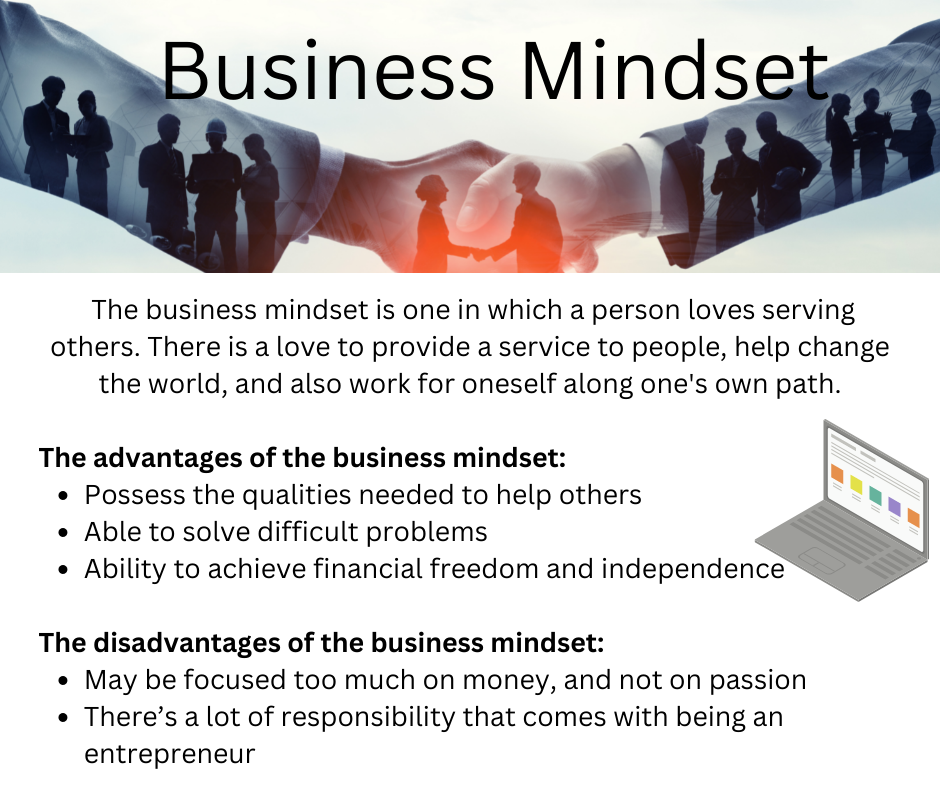
In the big picture, mindsets can be broken down into 2 primary groups: positive or negative. However, there are many categories of mindsets that can either be negative or positive, depending on how they are used.
Looking at this group of primary mindsets, determine which you most identify with, and then identify those that are beneficial, and those that have a negative impact on your life.
The good news is your mindset is NOT written in stone and you have the ability to change those that aren't working for you. The first step in creating change is recognizing and acknowledging where the change is needed.
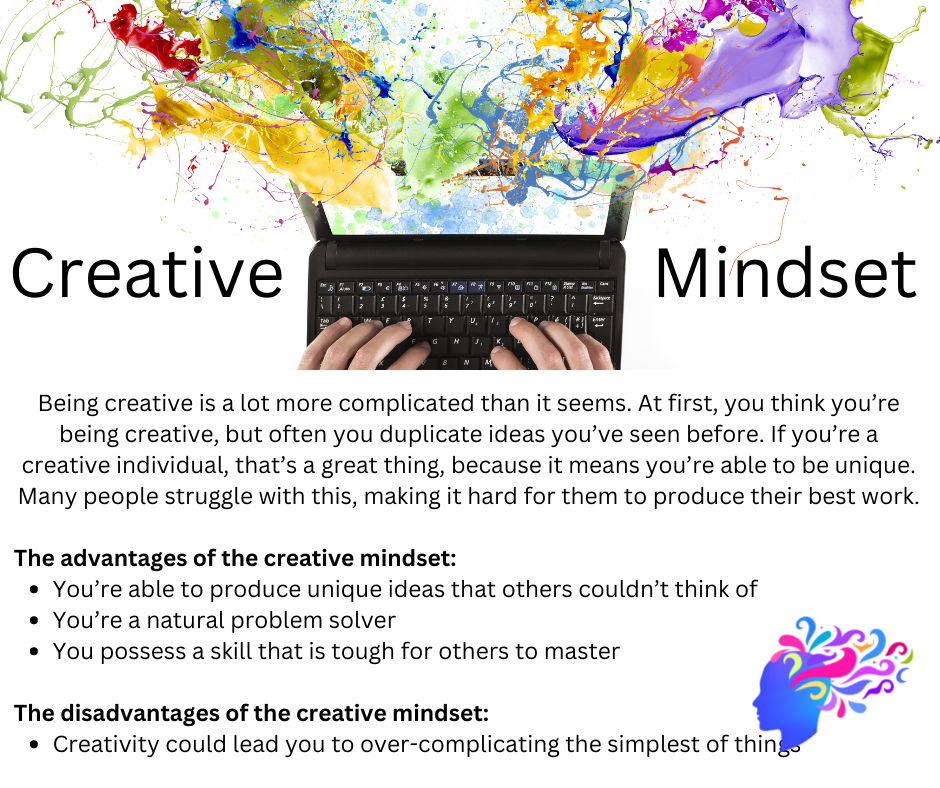

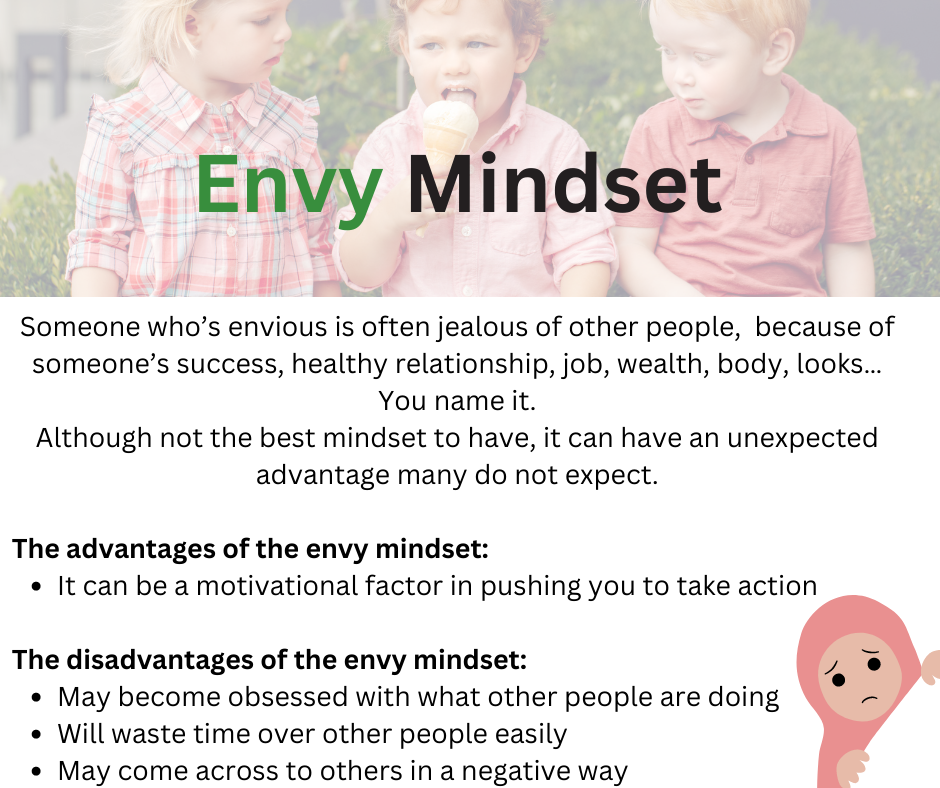
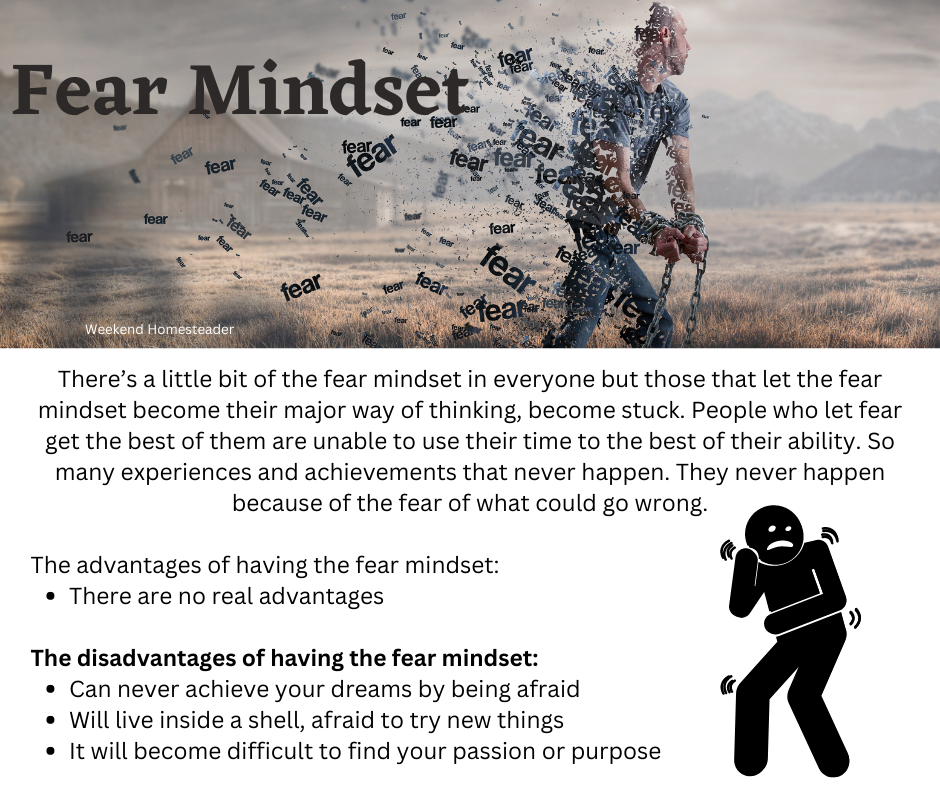
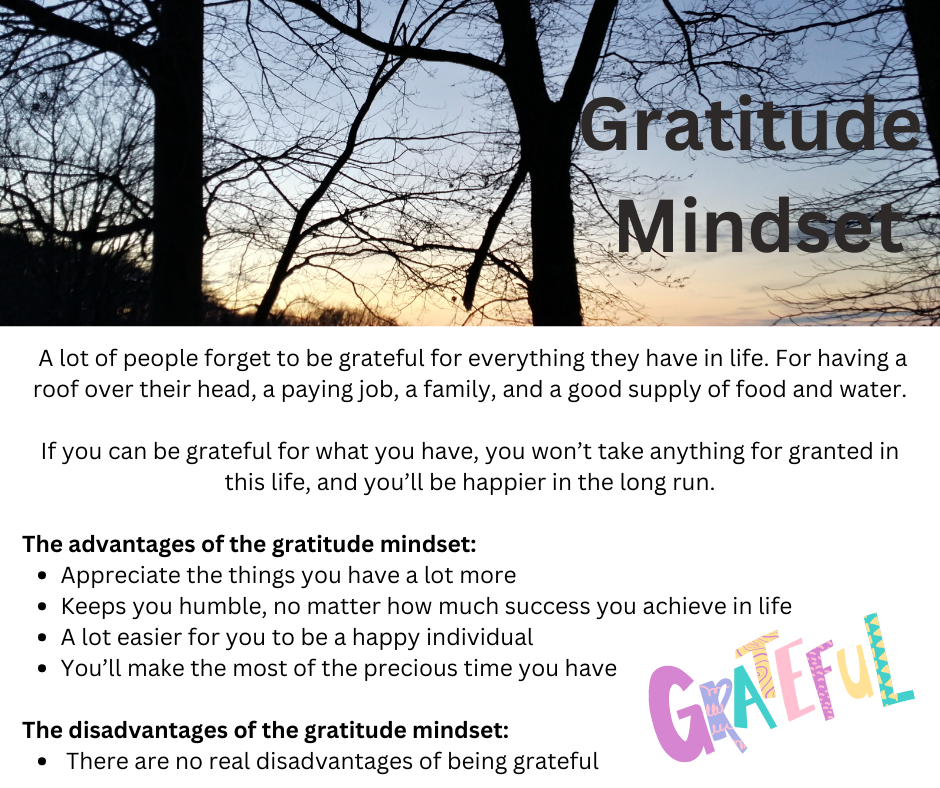
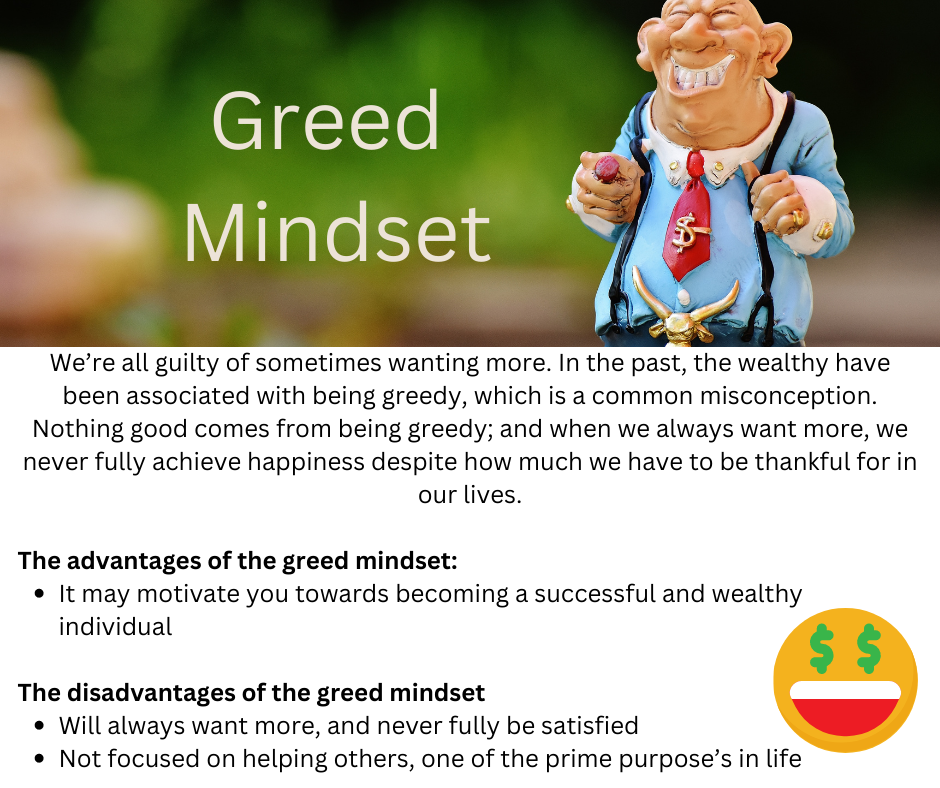
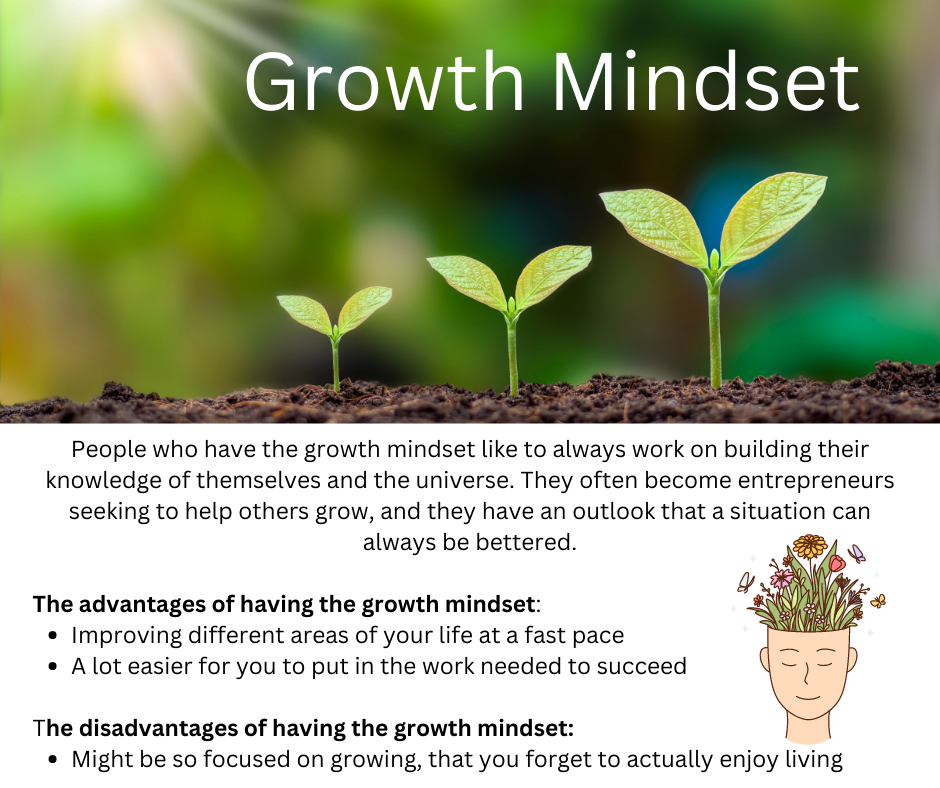
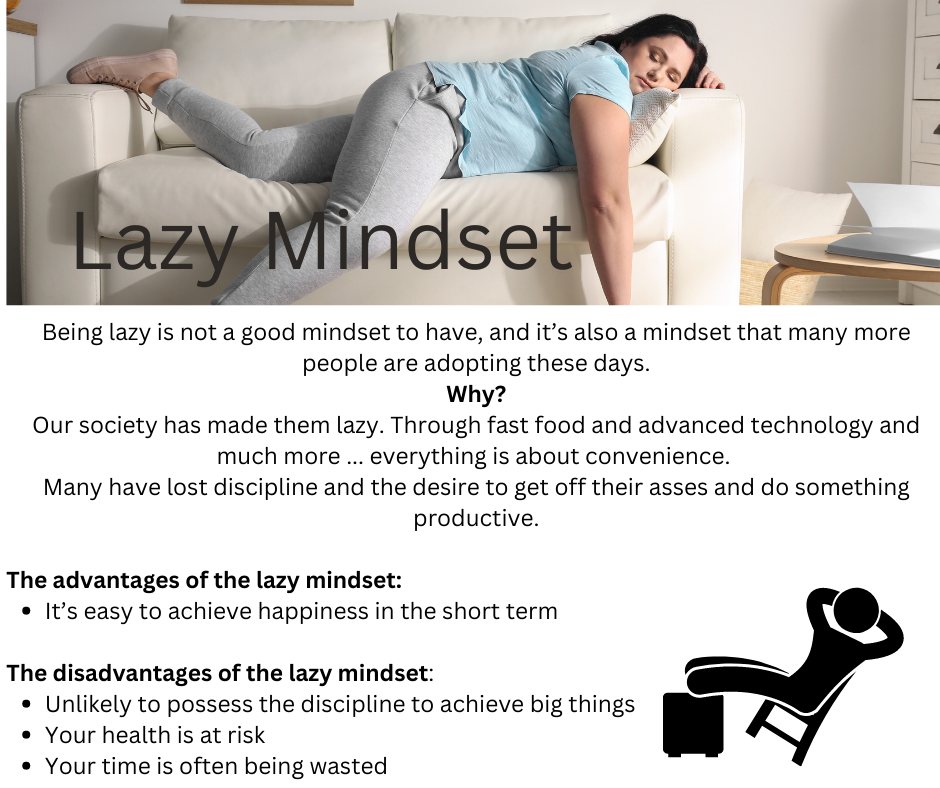
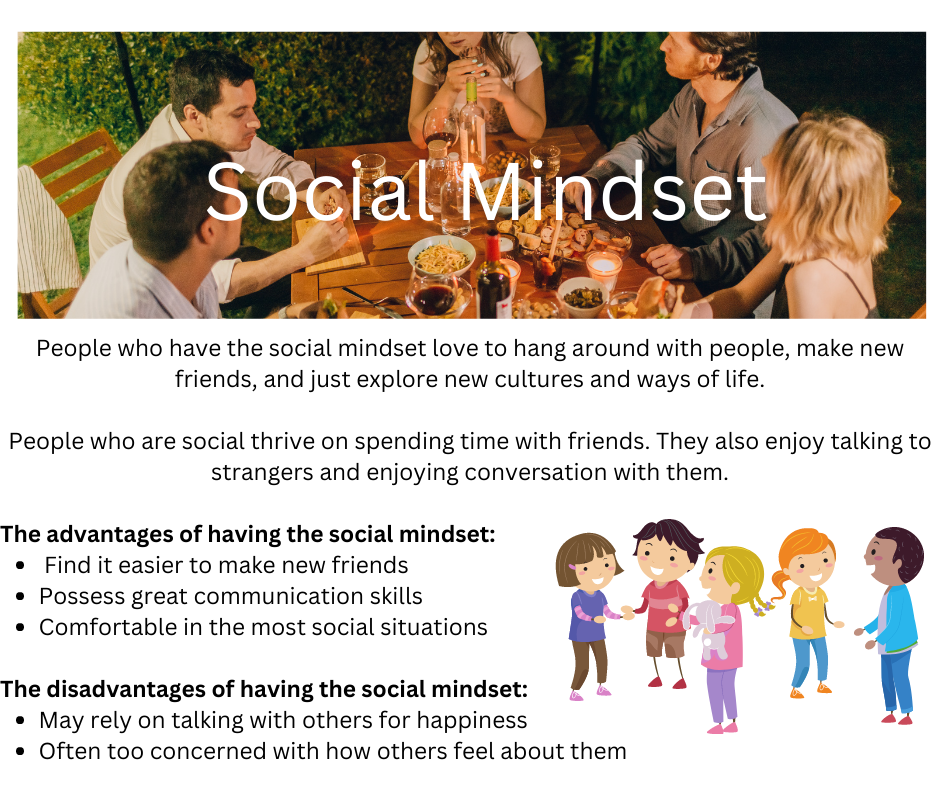
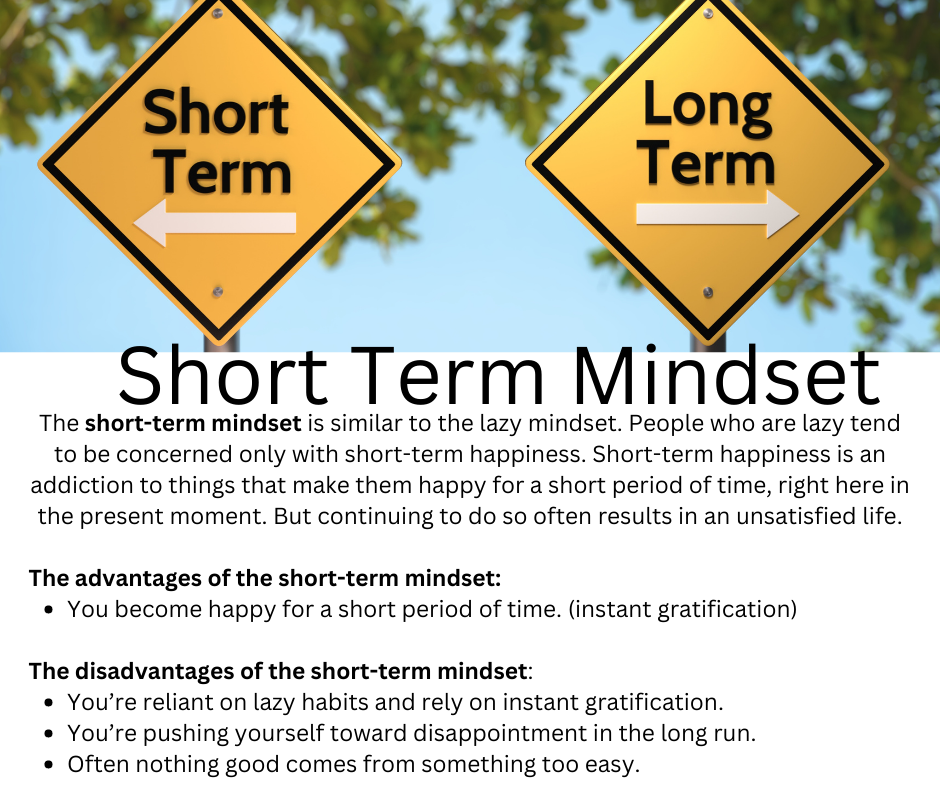
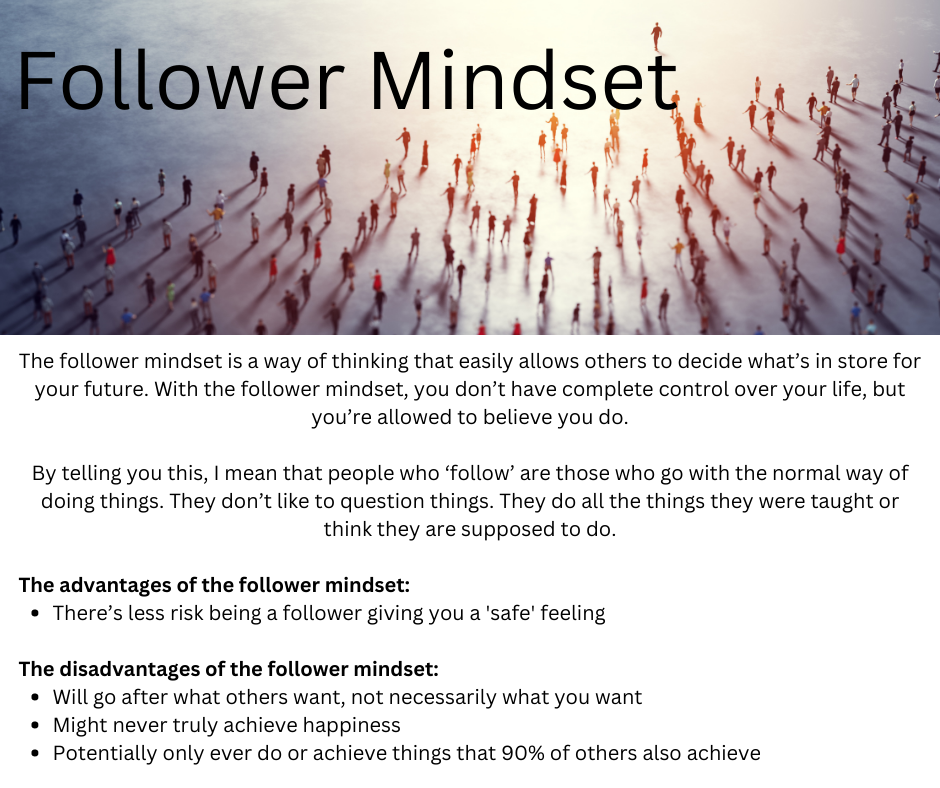
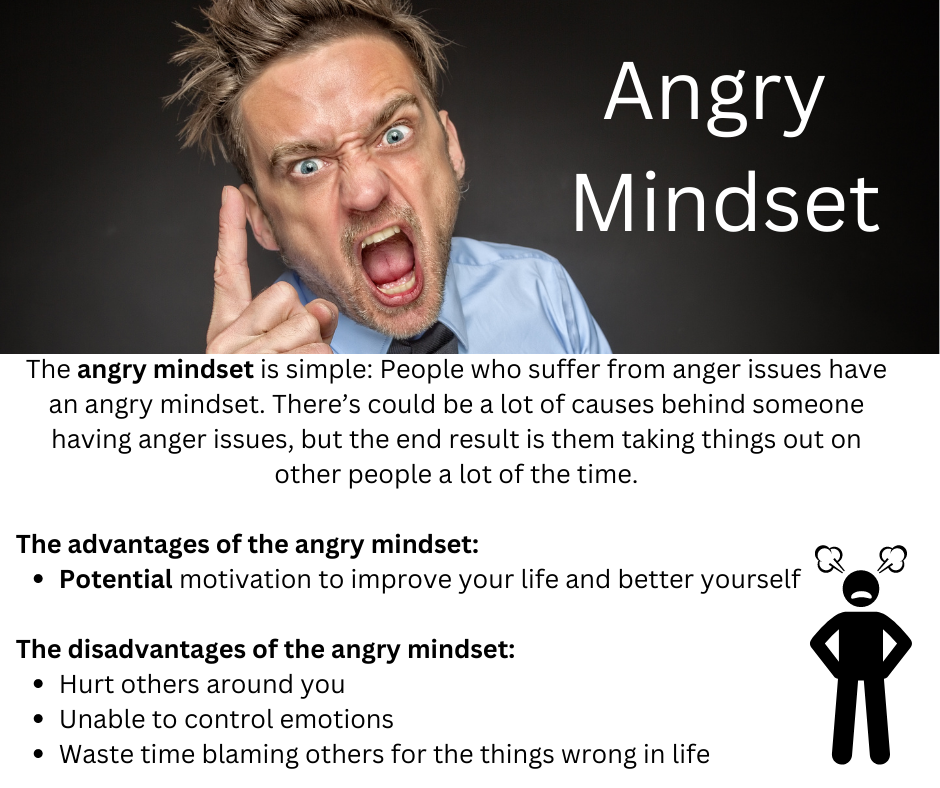
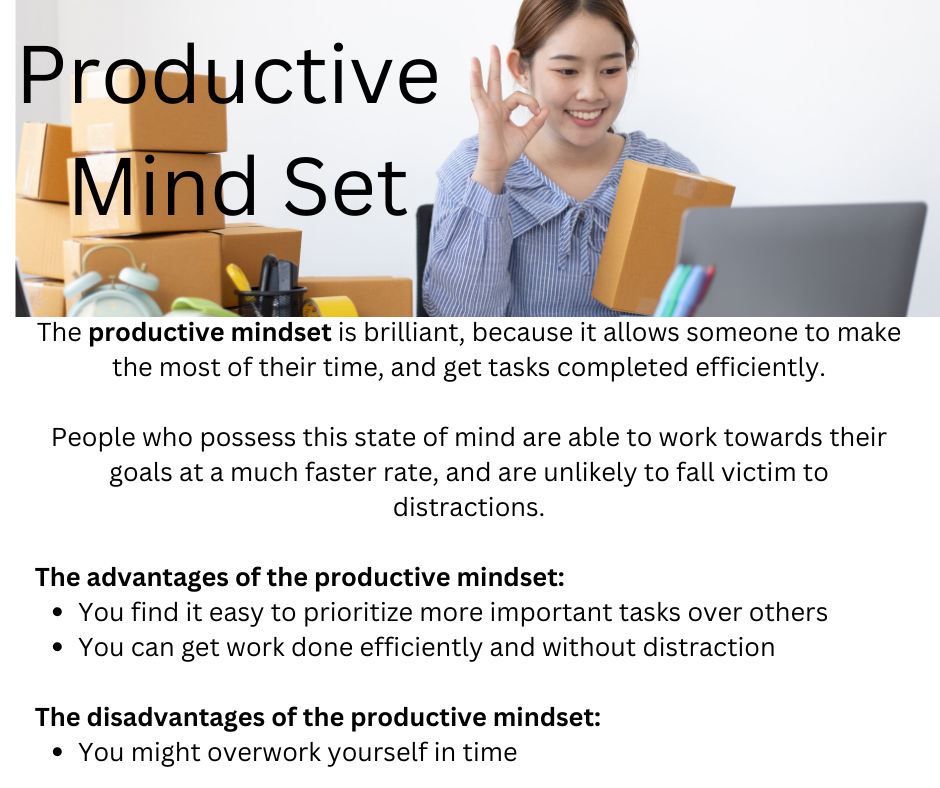
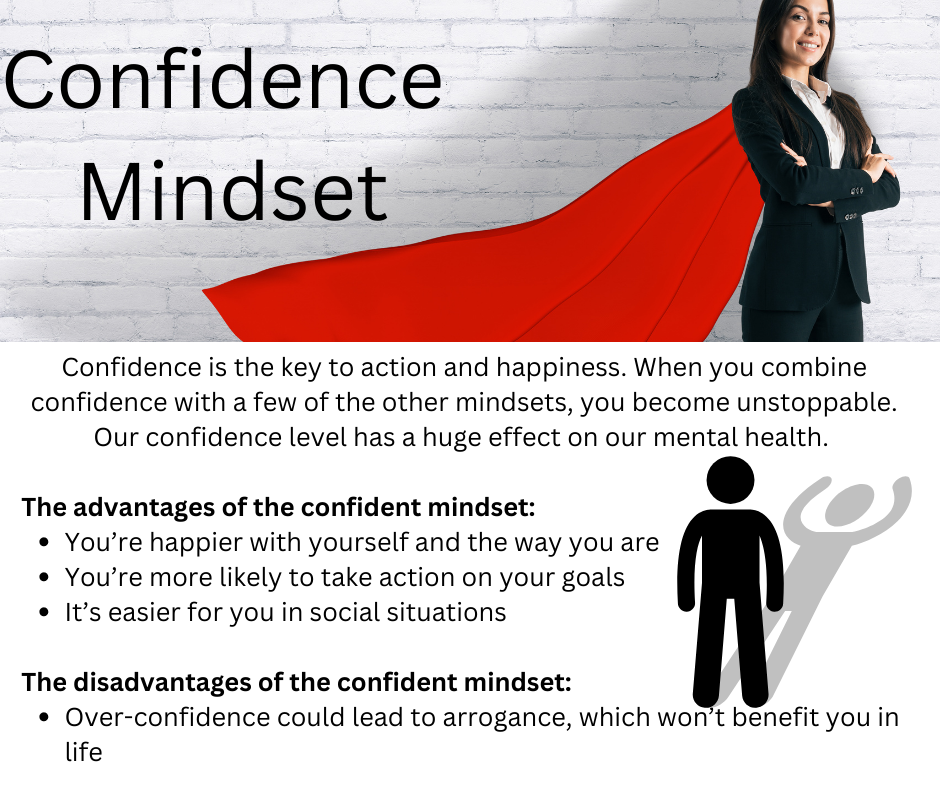
Affirmation: I Use My Time Wisely

Although there are many things to accomplish today, I am confident I can be successful in how I allot my time.
Keeping my home and yard in order is important. My relationships at home, work, and in my personal life mean a lot to me. I do everything I can to contribute to those relationships in positive ways each day.
I spend my time on important tasks and people who matter.
My work is demanding. It requires my best efforts as well as a considerable amount of time. I prioritize my tasks and ensure the most critical tasks are done before I work on less important items.
How I spend my time is the foundation of my existence. Therefore, I try to make wise decisions about how to divide my time each day.
I cherish my time as much as I do my home, relationships, and work. Time is like gold because I can use it to live the type of life I want.
Today, I plan to keep track of how I spend each hour. My goal is to assure I spend the most time on things that matter. I have sixteen waking hours each day. I intend to invest those hours in the activities and people that make me happy. I pledge to use my time wisely each day.
Self-Reflection Questions:
- How many hours each day do I spend on things that have little importance to me?
- What are the five most important people and things in my life?
- When I notice I am wasting precious time on irrelevant things, what can I do?
7 Tips To Overcome Imposter Syndrome

Have you ever felt like you don’t belong, or everyone is going to find out that you don’t deserve your achievements?
If you can relate to those feelings of chronic self-doubt, you’ve probably experienced imposter syndrome.
You’re not alone - studies suggest 70% of people experience imposter syndrome at some point in their careers.
Overall, imposter syndrome stems from a high sense of self-doubt. Instead of attributing your success to your skills, you might downplay your success and attribute it to luck.
Signs You Might Be Suffering from Imposter Syndrome
Do you relate to any of these patterns?
- You may set high goals for yourself. Because your goal is perfection, the smallest mistakes may make you feel like a failure.
- Attribute success to luck. You downplay your success because you do not believe you deserve the success, or you believe you are just lucky.
- Unable to recognize success. Instead of celebrating your accomplishments, you worry that others will see “the truth” about your skills and abilities.
- Fear of failure. Because of a fear of failure, you may set challenging goals and be disappointed when those goals fail. You might also take on limited tasks because you fear failure.
- Difficulty asking for help. You might have difficulty asking for help because you believe asking for help will show that you’re wrong or unqualified.
Experiencing imposter syndrome can limit your confidence to go after new opportunities because you feel that you do not deserve it.
Luckily, there are some steps you can take to give yourself more credit and start overcoming those feelings of self-doubt.
Steps to Overcome Imposter Syndrome
⇒Acknowledge imposter feelings. Recognize when you start feeling like an imposter. Instead of engaging with your thoughts of self-doubt, acknowledge that it is a normal response.
⇒Understand the root of the cause. Why do you think you feel like you don’t belong? Is it due to a fear of failure? Do you believe that you don’t deserve success? Why or why not?
⇒Focus on facts, not feelings. When you start feeling like a fraud, focus on positive facts. For example, maybe you were chosen for a job interview because of your qualifications.
⇒Ask yourself if that thought helps or hinders you. Does feeling fraudulent help or hinder you? Is that what you want to be? What kind of person do you want to be?
⇒Reframe your thoughts. Instead of telling yourself that you don’t deserve success, reframe your thoughts to give yourself more credit and enjoy the experience.
⇒Own your accomplishments instead of attributing them to “luck” or “help from others.”
⇒Instead of setting impossibly high standards, set smaller goals so you can enjoy the process.
⇒Remind yourself there will never be the “perfect time.”
⇒Accept that we all have to start somewhere.
⇒Accept that it’s okay to make mistakes. Instead of fearing failure, develop a healthy response to making mistakes. Accept that it’s normal to make mistakes and learn from each mistake instead.
⇒Reach out for support. Having a safe space to receive support will help you reduce feelings of being an imposter. When you feel imperfect, make a mistake, or receive a compliment, your first instinct may be to hide. Instead, start reaching out to an encouraging mentor, coach, or colleague for support.
⇒Say “thank you” when you receive a compliment.
⇒Practice being honest when you feel imperfect, embarrassed, or have made a mistake.
⇒Share and celebrate your achievements and successes.
Imposter syndrome can make you feel like you’re not good enough, you don’t belong, or you are undeserving. But it’s important to remind yourself that learning and making mistakes do not make you a fraud - it makes you human.
Instead of doubting yourself, take the above steps to build your self-esteem and self-worth.
Do More In Less Time And Have More Time For Yourself

Getting things done brings such a great feeling of accomplishment, but it can also be overwhelming if the task seems insurmountable. Sometimes, the days just don't seem long enough to do everything we want to do. When that happens, worry can set in, but it doesn't have to!
You can do more than you ever thought was possible, and in less time too, giving yourself time to relax and really enjoy life!
It all begins with a solid foundation of time management and scheduling. It's okay if you're not a good time manager right now, you can learn to be. It just takes a little bit of practice and you'll soon be getting more and more done.
When you see how much you're accomplishing, you'll work even harder during your busy times, and enjoy those down times more thoroughly.
These scheduling strategies will help you become an expert manager of your time:
⇒Schedule your life for maximum benefit. You can avoid procrastination and the big stressed-out rush to meet a deadline by scheduling each day and using just a bit of self-discipline to stick to your schedule.
⇒It helps to break things down into smaller tasks. For example, do you have a big presentation coming up at work in two weeks? Don't try to do it the night before it's due. Start now. Working for just a half hour each day can help you get that presentation done with plenty of time to spare.
⇒By scheduling your day according to your priorities, you can better utilize the time that you might otherwise have wasted doing unproductive things, like watching television or waiting for the next item on your to-do list to come to you.
⇒Disallow doubts from getting in your way. That little voice in the back of your mind that tells you, "It's too much work," or "It's not going to happen," doesn't know what it's talking about!
⇒You can do anything you set your mind to. Keep that thought in mind as you go through your day. The more you think it - or even say it out loud - the more you'll internalize and believe it.
⇒When you remind yourself how much you're capable of doing, you'll work harder so you can reap the rewards of being done with work.
⇒No matter how you reward yourself, make it a point to do so regularly. Finished that presentation? Take the evening off and watch your favorite movie! Whatever reward works for you is a good one - as long as the work's done first.
⇒Recognize when you're getting stressed and why. Sometimes, in an effort to get more done, you'll find that you aren't getting the time for yourself that you'd hoped for. When this happens, stop and reassess your schedule.
⇒Are you following your agenda? Are you productive during your scheduled working times? Are you meeting your goals? Where can you make changes for better success?
⇒Do you concentrate and get your work done during your working hours? If not, you may find that you still have to work when you should be relaxing. This is a vicious circle that leaves you feeling stressed, while getting nowhere.
⇒Eliminate your stressors while building in stress relief. Think about the following as you go about your workday:
⇒By focusing during working hours, you'll complete each task much sooner. Get your drudgery tasks out of the way as quickly as possible to make more time for more enjoyable tasks.
⇒Work time is for work only - so avoid distractions. Ringing phones and other issues can stop you from accomplishing your work. Forward calls to your voice mail and establish "do not disturb" times. You'll be amazed at how much work you can get done without distractions!
⇒If you complete your tasks early, keep working until your schedule says it's time to stop. Perhaps you can tackle some work for the next day to get ahead. Being a little ahead gives you the flexibility to take care of inevitable emergencies without falling behind in productivity.
⇒Recognize when you need a break. People are not machines so your schedule should reflect that. Realistic break times should be part of even the busiest schedule.
By planning your time wisely, you'll accomplish more and be able to reap the many benefits of true relaxation when you're done. It's well worth the effort!
Affirmation: Being Organized Simplifies My Life

Being organized makes my life a lot easier. I start by getting my thoughts under control. When my mind is at peace, my surroundings become more orderly.
Coordinating my schedule with a written calendar simplifies planning, saves time, and helps me to live up to my commitments. I am clear about the tasks I need to do and how to approach them efficiently. I keep track of the promises I make to myself and others. I live up to my word.
I put systems in place that simplify tasks and keep me from becoming overwhelmed. I break projects down into smaller steps. I follow structured routines that enable me to do more in less time.
I establish priorities. My top obligations come first. This easy rule helps me focus on the things that are most important to me.
I streamline my to-do list and modify my expectations. I cut back on less urgent chores. I am satisfied with being able to see most of the rug in my child’s bedroom. I can accept a few toys scattered around.
I evaluate my attachment to material things. The less I own, the easier it is to keep my home neat.
I welcome support from others and delegate assignments to free up my time and energy.
Today, I acknowledge that an orderly life helps me enjoy stress-free days. I create a calm mental and physical environment that simplifies my life and brings me joy.
Self-Reflection Questions:
- What is the most important area of my life where I want to be more organized?
- How does being organized help me to be more productive?
- What is my chief personal motivation for becoming more organized?



